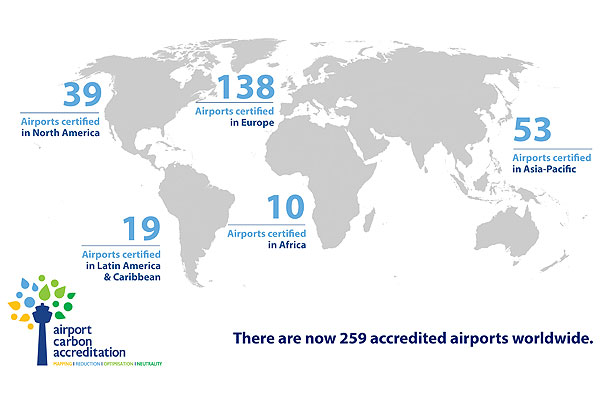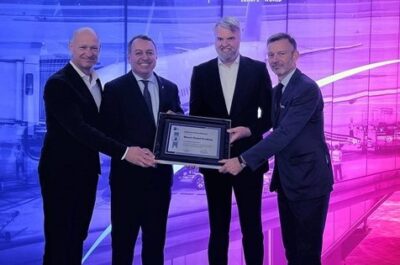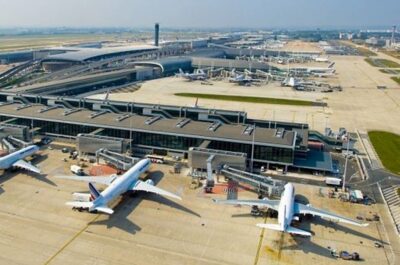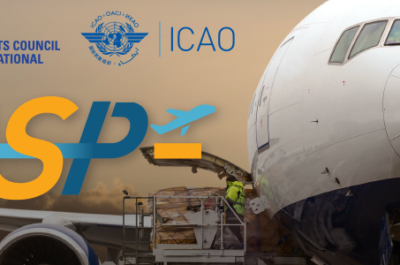259 airports now actively engaged in addressing their impact on Climate change. Airport operators of 49 airports worldwide are carbon neutral.
Following last month’s COP24 UNFCCC Climate Change Conference in Katowice, Poland, Airports Council International provided an update on the latest developments among the community of 259 airports currently in the global carbon management standard, Airport Carbon Accreditation.
Niclas Svenningsen, who heads the Climate Neutral Now initiative at the United Nations Framework Convention on Climate Change (UNFCCC) Secretariat in Bonn, Germany commented “Following the conclusions of the IPCC Special Report and COP24, the need to address the escalating threat of Climate change is ever more urgent – that means all hands on deck. This isn’t a time for cynicism – it is a time for raising awareness and driving collaborative action. The airport industry’s work through the Airport Carbon Accreditation programme is an example of global private sector engagement in climate action – now with 259 airports on board. 167 of those are actively reducing their emissions, 102 of them have also engaged others on the airport site to get involved and 49 are running carbon neutral airport operations. I invite people to find out more about their local airport’s involvement and ambitions – mobility is a fundamental part of life, so let’s try to make it as efficient & ecological as possible.”
The latest airport operator to become carbon neutral is Aeroporto di Napoli in Italy. After gradually making its way through the different levels of Airport Carbon Accreditation, demonstrating the CO2 reduction it has made on-site and the engagement of aviation partners, it has invested in Gold Standard offsets to address its remaining residual emissions.
Armando Brunini, CEO of Aeroporto di Napoli said “Running an airport is a complex business – there are lots of stakeholders and many collaborations and partnerships that need to be fostered and maintained, if real efficiency gains are to be achieved. Our journey to this moment – from initially mapping our carbon emission sources, to reducing our emissions, engaging other companies on the airport site to get involved and now becoming carbon neutral – have benefited from the framework, guidance and rigour of the Airport Carbon Accreditation programme. We in the airport business compete with each other on so many fronts: attracting airlines to set up new routes, attracting passengers, being the first to embrace the latest innovation and more. With Climate change now an urgent priority, it’s only fitting that we should seek to exceed expectations on this too – as a way of motivating even more climate action within the airport industry and the wider air transport sector.”
With 4 different levels of accreditation covering all stages of carbon management (Mapping, Reduction, Optimisation and Neutrality), Airport Carbon Accreditation is independently administered, institutionally-endorsed and has the support of the United Nations Framework Convention on Climate Change (UNFCCC), United Nations Environment Programme (UNEP), the International Civil Aviation Organisation (ICAO), US Federal Aviation Administration and the European Commission (EC).
Moving on up
The following airports recently moved up to Level 3 ‘Optimisation’, by stepping up their activities from reducing their own carbon emissions, to also engaging other companies on the airport site to reduce their emissions: Narita International Airport, Kansai & Osaka Airports (Japan), Taoyuan International Airport (Taiwan), Quito Mariscal Sucre Airport (Ecuador), Bucharest Henri Coanda Airport (Romania), Larnaca & Paphos Airports (Cyprus) and Lapland Airports (Enontekio, Ivalo, Kemi Tornio, Kittila, Kuusamo and Rovaneimi in Finland).
Airports recently successfully moved up to Level 2 ‘Reduction’ include Noumea la Tontouta (New Caledonia), Salahah Airport (Oman) as well as Dinard Bretagne and Rennes Bretagne (France) as these airports progressed from moving mapping their carbon emissions, to actively reducing them.
Newcomers
Around the world, several airports have become Airport Carbon Accredited for the first time. Kobe Airport in Japan at Level 2 ‘Reduction’; Zhengzhou Xinzheng International Airport in China at Level 1 ‘Mapping’ and the 4 airports of the Airports Authority of India also at Level 1 ‘Mapping’ (Netaji Subhash Chandra Bose Airport; Bhubaneswar Biji Patnail Airport; Varanasi Lal Bhadaur Shastri Airport and Trivandrum International Airport). In Europe, La Reunion Roland Garros Airport joined at Level 2 Reduction and Cornwall Airport Newquay in the UK rejoined the programme at Level 1 Mapping.
In the Americas Kelowna International Airport, Pisco Airport and Salvador Bahia International all became accredited for the first time at Level 1 Mapping.
To reduce their carbon emissions, airport operators need to consider the full extent of the emissions sources under their direct control. Investment in more energy efficient lighting, heating, switching to hybrid or electric ground vehicles, onsite renewables, energy management tools and employee behavioural change all have a part to play. The possibilities become even more diverse when airport operators engage other stakeholders on the airport site as well (Level 3 of the programme), with initiatives such as Airport-Collaborative Decision-Making (A-CDM), Continuous Descent Operations and Time-Based Separation lowering airline-associated carbon emissions and better intermodal access and electric or hybrid taxis offering passengers cleaner transport solutions to/from the airport.
Carbon neutral airports at Level 3+ of the programme have to provide evidence of undertaking all the actions required by the programme (mapping their emisisons, reducing them and engaging others on the airport site), before investing in responsible carbon offsets. The 44 carbon neutral airports during Year 9 of the programme (May 2017 to May 2018) offset 672,000 tonnes of CO2 in residual emissions. To help airport operators select high quality offsets, a dedicated guidance document on offsetting has just been released by the Airport Carbon Accreditation programme.
Vicky is the co-founder of TravelDailyNews Media Network where she is the Editor-in Chief. She is also responsible for the daily operation and the financial policy. She holds a Bachelor's degree in Tourism Business Administration from the Technical University of Athens and a Master in Business Administration (MBA) from the University of Wales.
She has many years of both academic and industrial experience within the travel industry. She has written/edited numerous articles in various tourism magazines.












































































































































































